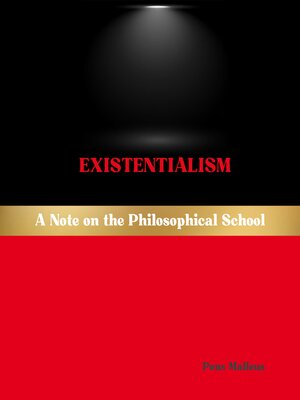Existentialism
audiobook (Unabridged) ∣ A Note on the Philosophical School · Western Philosophical Schools
By Pons Malleus

Sign up to save your library
With an OverDrive account, you can save your favorite libraries for at-a-glance information about availability. Find out more about OverDrive accounts.
Find this title in Libby, the library reading app by OverDrive.



Search for a digital library with this title
Title found at these libraries:
| Library Name | Distance |
|---|---|
| Loading... |
This audiobook is narrated by a digital voice.
Existentialism is not merely a philosophical doctrine but a living, breathing confrontation with what it means to be human. It is a call to face the raw realities of existence—freedom, responsibility, anxiety, alienation, and ultimately, death—without retreating into comforting illusions. This book is born out of that call: to explore, unpack, and wrestle with the core ideas of existentialist thought, not from the distance of academic abstraction, but from within the very questions that define our lives.
The existentialist tradition is broad, diverse, and sometimes internally contradictory. It includes thinkers as different in style and emphasis as Søren Kierkegaard, Friedrich Nietzsche, Jean-Paul Sartre, Simone de Beauvoir, Albert Camus, Martin Heidegger, and Maurice Merleau-Ponty. Some rooted their reflections in theology; others were staunch atheists. Some spoke of absurdity, others of transcendence. But what unites them is a shared concern: the centrality of individual existence in an often indifferent or unknowable universe.
Existentialism arose in a modern world disoriented by the collapse of traditional values, the disintegration of religious authority, the trauma of war, and the alienation of industrial society. It gave voice to a generation asking not "What should I believe?" but "How should I live?" and "Who am I when all the roles and certainties fall away?" These are not questions with definitive answers. They are lived questions—answers are provisional, contingent, and must be earned through experience, not received by doctrine.
This book does not pretend to provide the final word on existentialism. Instead, it aims to guide readers through its major themes and figures, to offer a map for navigating its often challenging terrain. From Kierkegaard and Nietzsche to Sartre and Camus, we will examine how existentialists have approached the problem of meaning in a world where meaning is not given.







